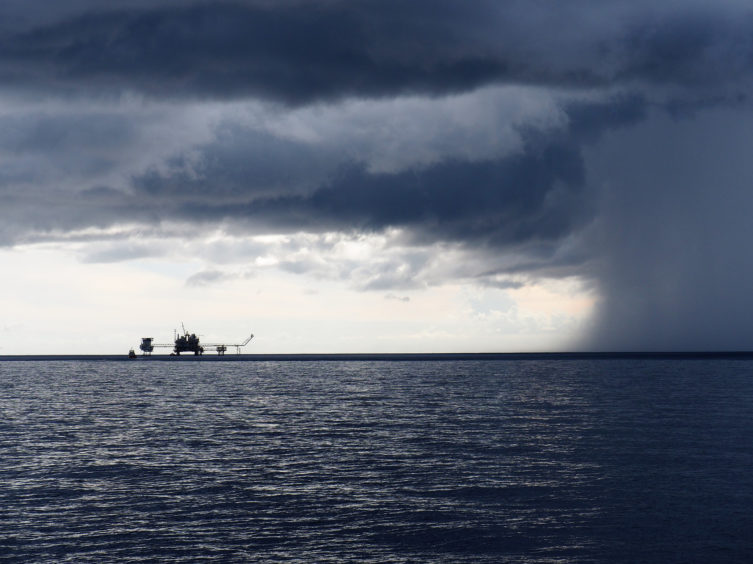
It is hard to know where to begin when describing the scale of the crisis gripping Big Oil.
While a sizeable number of strategically vital commodity-based industries are battling to survive in a world gripped by the worst pandemic since Spanish flu a century ago, only the petroleum industry is beset by two crises of a truly global scale.
The first is Covid-19. The second is the fourth oil price collapse of scale since the North Sea started producing oil and gas more than 50 years ago and this time it was inflicted by a serious market share spat between Russia and Saudi Arabia.
Each of the previous three downturns inflicted damage but also opportunities. Nowhere more so than in the North Sea and the UK and Norwegian sectors particularly.
While privately invested exploration and production (E&P) companies have always been a feature of the North Sea, it appears to have been some time before private equity (PE) took the plunge into production stakeholding.
However, it was early into the supply chain, with names like 3i and LimeRock to the fore.
The transformational PE entry deal on the UKCS was probably when 3i took a stake in Venture Production, which was founded in 1997 by entrepreneurs Larry Kinch and Bruce Dingwall.
Since then PE has become a recognised, potent and increasingly important stakeholder in North Sea E&P companies and in other parts of the world, notably North America.
Regardless of whether they are parastatals, listed wholly or partially on public markets or privately owned by individuals or institutions such as PE houses, the expectation is that they deliver a return to investors.
Commodity-based industries are generally cyclical and petroleum is an excellent example. Experienced investors are conditioned to this and therefore plan for good and bad years.
The North Sea is nothing if not resilient and can still be an excellent place to get a good return on investment, though timing is all as Hong Kong PE house Kerogen Capital discovered last year when it put Zennor Petroleum on the market, with news seeping out late October that it had hired US investment bank Citi to help with the sale.
Zennor was founded in 2006 and had been picked up by Kerogen in 2015, the house putting down $100 million initially and increasing this to $300m in 2016.
Serica was touted as a possible buyer, but others were invited to take an interest by around Christmas, according to speculation.
The Reuters news agency reported that Zennor was thought to be variously worth around $500m and $750m.
Silence reigns and Zennor is like all North Sea companies battened down and riding the storm. It will be some time before the For Sale sign reappears.
Also for sale last year was Siccar Point, owned jointly by PE houses Blackstone and Blue Water Energy. EIG-backed Chrysaor is said to have offered around $1.6 billion in the second bidding round on January 13 this year.
It was reported on January 22 that final bids had been received from suitors including Chrysaor and Equinor. We reported too that Canada’s Suncor, Chinese oil major Cnooc and a company backed by private equity firm HitecVision of Norway also submitted binding offers.
Blackstone/Blue Water were reported to be asking $2-3bn.
However, there was no mention of the hoped-for sale when Energy Voice spoke to Blue Water’s Graeme Sword recently. Rather the conversation was about the current situation and future of PE in the North Sea.
Sword is a founding partner of Blue Water and has direct experience of three of the four big downturns.
“Early in the most recent upcycle and before the virus and oil price crises hit, we had companies that had generally recovered from the downturn of 2015 through 2017, stabilised in 2018-19 and were hopefully going into growth in 2020,” he said.
“Clearly we’re now in a very different environment from the one that we were all planning, budgeting and forecasting for.
“The oil and gas industry is broadly resilient to oil price shocks, even huge ones. People have learned to operate in such a way that they react very quickly to the cycle.
“Nevertheless, I think the combination of Covid and the latest oil price downturn has caught out the industry.
“That said, companies can adapt their cost base quickly to cycles and this is the fourth major downturn experienced by the North Sea industry; where the supply chain is once again feeling beaten up when it comes to margins and E&P companies have been forced to cut their cloth accordingly.”
Sword agreed that the frightening thing for E&P companies and private equity investors this time is the speed with which the current downturn hit.
“From an investor perspective, the first thing is to make sure that every company in the portfolio is robust and going to survive,” he said.
“There’s a lot of focus on cash-flow planning, banking facilities, understanding capital programmes and managing discretionary spending. Cash becomes king very quickly.
“Then the question for PE becomes: If all of your companies are going to survive, how do you then recover value and grow and prosper?
“That’s the bit that people in the industry are scratching their heads at. This time there’s more of a sense of fear as to what the future might hold.
“I think there’s more uncertainty as to how this sector really can attract capital and talent and all the other things it needs to grow, survive but preferably thrive and support the region and the supply chain.
“Most conversations that we (Blue Water) are trying to have at the moment have been around: ‘Look, it’s just too early for us to know what we’re doing or making any plans’.
“Even the big companies are tending to say that they’re not prepared to provide guidance as to how 2020 is going to shape up because they plain don’t know what the future holds.
“In prior downcycles, people have more or less known what the impacts were likely to be. Not this time. There’s too much uncertainty. How can it be otherwise given that we have a downturn sparked by a row between major producers Saudi Arabia and Russia, overlaid by a global pandemic the likes of which has never before been experienced?”
Invariably, some are better placed to ride a storm than others. Best placed of the four E&P firms in the Blue Water portfolio is probably Siccar Point because of its strong assets portfolio and decent cash generative North Sea assets.
Waiting in the wings for development and operated by Siccar is Cambo, about which Sword remains optimistic.
“We still consider it to be a very commercial development, even in a low oil price environment,” he added.
“Another important aspect to consider is Siccar’s capital structure. We took advantage of the Norwegian bond market twice over the past two years. While we didn’t need capital, the best time to raise it is when you don’t need it. And that’s proven to be very valuable.
“So we have loads of headroom at Siccar. In fact the challenge on Siccar is what do we do next (failure to sell notwithstanding).”
The prediction is that there’s going to be a round of consolidations on the UK Continental Shelf but that there may be more in the way of mergers than acquisitions.
“I think we’re going to see people being rather reluctant to use any liquidity they have for acquisitions, but if they could combine portfolios and achieve synergies in costs and cash flows, that might be a way forward.
“We’re trying to get onto the front foot at Siccar. We have built a very solid business but how do we grow again?”
Meanwhile, there are other PE players wondering whether they should stay in E&P, let alone in the North Sea, or pull out.
So what’s the gossip? Who is destined to become the new leader among the independent E&Ps in the North Sea this time around?
There would appear to be a market for good companies and PE is acknowledged as being important to the North Sea’s future.
But general PE players are shying away whereas once they crowded into Aberdeen, hunting for supply chain opportunities especially.
They believe oil and gas is too cyclical; it hasn’t generated the returns hoped for and there are other sectors where they can invest their capital and get a return more predictably.
According to Sword, there are now only a few highly specialised PE players active in E&P.
Other than Blue Water and Blackstone they include Hitec, Carlyle, EIG, already mentioned Kerogen and that’s about it.
“Everybody has kind of placed their bet and is waiting to see how they can deliver returns,” reflects Sword.
“Similarly, on public markets. In the past there was the belief that it was possible to build companies of scale and then take them public. Venture is an excellent example.
“That no longer looks possible. Public markets seem to have lost all appetite for E&P.”
Does that mean we’re in a position where there’s no longer any point in “IPO-ing” a successful E&P company, but that taking a listed company off the public market could yield tolerable returns? Or reversing onto the market via acquisition/merger?
“This sort of thing is going to have to be considered,” Sword said. “If you can’t exit via public markets, are ‘strategics’ going to buy regional independent E&P companies?
“I’m not sure that the big players are much interested in M&A in the North Sea anymore. So how do investors exit?
“It may be a different model; maybe it has to be a company that generates cash flow and distributes it, that is yield or dividend
vehicles.
“It sounds perverse in the current situation; but I think one of the challenges for independent E&P companies backed by PE is that you’re not going to want to get too big.
“The bigger you become the more vulnerable you’re going to be and I now think there may be an optimum size.
“Also, as one looks around the marketplace, I believe there are still companies that have good assets but troubled balance sheets and are over-leveraged.
“A Premier Oil for instance or an Enquest? They’re over levered. They probably have the ambition and operating capability to build bigger businesses but are perhaps prevented from doing so by balance sheet issues.”
But surely Premier’s been in that position for years?
“Indeed. And yet, at the start of the year when oil was $60 moving towards $70, it probably looked like Premier had a path,” Sword said.
“They had that $625m BP deal signed plus another worth $246m with Dana. It looked like the way ahead was clear for them to repair their balance sheet and grow.
“Looking ahead; I think there’s going to be quite a lot of activity, one way and another. But it’s going to be through mergers. It’s going to be potentially private companies reversing into quoted companies. And perhaps it could take the form of PE firms injecting capital into public companies which have tended to have fallen faster and further than those in private hands.
“Stability-wise, the Siccars, Chrysaors, the Neptunes and the like are in my opinion more solid than their public counterparts. The challenge they face is, how do they generate returns and liquidity to their investors?
“And, until that cohort exits, the investors backing those companies are probably the investors that are going to back the next generation of UK independents, if there is a next generation.”
